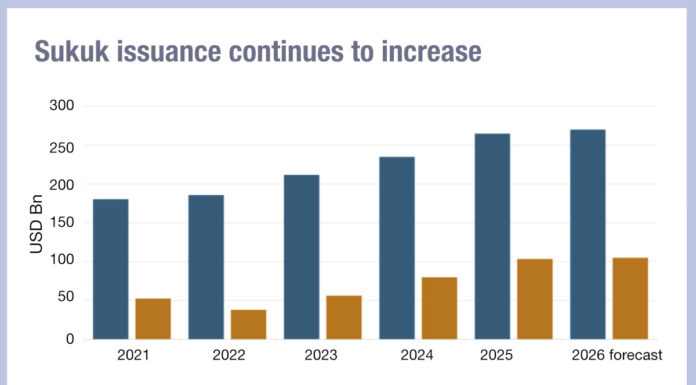UBS Asset Management’s Jonathan Gregory, head of UK fixed income, has posited the idea that European countries may at some point seek to mutualise their debt. Ironically, he notes that the more de-globalisation grows, the more Europe needs to mutualise debt in order to survive.
“By debt mutualization in this context I mean pooling debt obligations across multiple countries,” he writes. “One could imagine a ‘federalisation’ that implies transfer of debt responsibility from a lower level of government to a higher level (like the federal government). This might well also be a feature of the future landscape.”
His case is that Europe’s countries are stretched by the need to increase spending on military, economic pain from a trade war and lower productivity as outlined by the 2024 ‘Draghi Report’.
With US$167 billion borrowed in the last 12 months to May 2025, Germany has been the fourth largest sovereign borrower in that period, according to The DESK data, followed by Czechia and Spain.
“The EU already borrows more cheaply than every other large Eurozone country, except Germany,” Gregory observes. “This [mutualisation] would not have to be a full fiscal union, where each country effectively absorbs and guarantees past obligations of others. But it would require a commitment to an expansion of existing joint borrowing frameworks for future ‘temporary’ or ‘targeted’ needs. It could even come with some sort of security over the EU budget.”
One of the barriers to this is Germany, whose debt levels are about 60% of GDP, and who alongside Austria, Finland and the Netherlands, is politically opposed to such a move, Gregory says. This contrasts with France and Italy, both past 100% of debt/GDP ratio and “where prior fiscal profligacy” and who have failed to increase taxation or lower spending.
The cracks in resistance that he sees, are Germany’s own commitment to “fiscal rectitude” having weakened, the EU’s historical debt raising during the COVID pandemic and the current crisis potentially created similar pressures.
If he is right, investors may get further opportunities in Europe’s SSA space, underpinned by the growth of the European defence sector and the threats to the fiscal credibility of certain Eurozone governments. The question is whether Germany will receive an offer it cannot refuse.
©Markets Media Europe 2025













